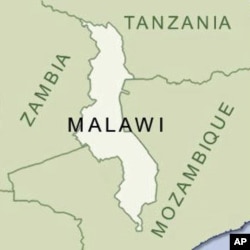In Malawi, a new women’s rights group is pushing the government to liberalize abortion laws. The group, the Coalition for the Prevention of Unsafe Abortion (COPUA), says the current laws violate women’s rights on reproductive health.
Malawi’s penal code outlaws abortion except in cases where the life of a woman is in danger. It says anyone who performs an abortion may be sentenced to 14 years in prison, and any woman who requests one may get seven years.
“There are a lot of cases (of abortion-related deaths) that go unreported in villages in rural Malawi and even in towns and cities,” says COPUA official Omega Chanje-Mulwafu.
“It’s a sensitive topic and with that has come a lot of apathy. A lot of people [turn a blind eye] to this problem that is killing a lot of women and girls in and around the country.”
Malawi’s maternal mortality rate is one of the highest in Africa -- second only to that of Sierra Leone, which has been through a devastating civil war. Recent government statistics in Malawi indicate that up to 30 percent of maternal deaths are due to complications of illegal abortions.
Other independent studies say complications among school-age girls account for between 16 and 40 per cent of admissions to gynecology wards in Malawi’s public hospitals.
Possible complications include hemorrhage, infection, infertility and death.
Anti-abortion campaigners argue that legalizing it would be like giving women or girls a license to be promiscuous. But Chanje-Mulwafu disagrees.
Legalization has not led to an increase in abortions in South Africa, Zambia or Ghana, she says.
The Malawi chapter of an influential women rights organization, Women in Law in Southern Africa, is suing the government for preventing women from accessing safe abortion.
Its executive director, Seode White, says existing laws put women at risk by forcing them to seek back-street abortions from traditional healers and illegal clinics.
Government and religious leaders have spoken out strongly against legalizing abortion.
Secretary for Health Chris Kang’ombe recently told a local daily, The Daily Times, that abortion is not among the strategies that the Malawi government would use to implement safe reproductive health services. Instead, he says, the government will promote the use of contraceptives.
But Chanje-Mulwafu says her group is continuing to press for legal change because its major concern is the rights of women when contraception fails.






